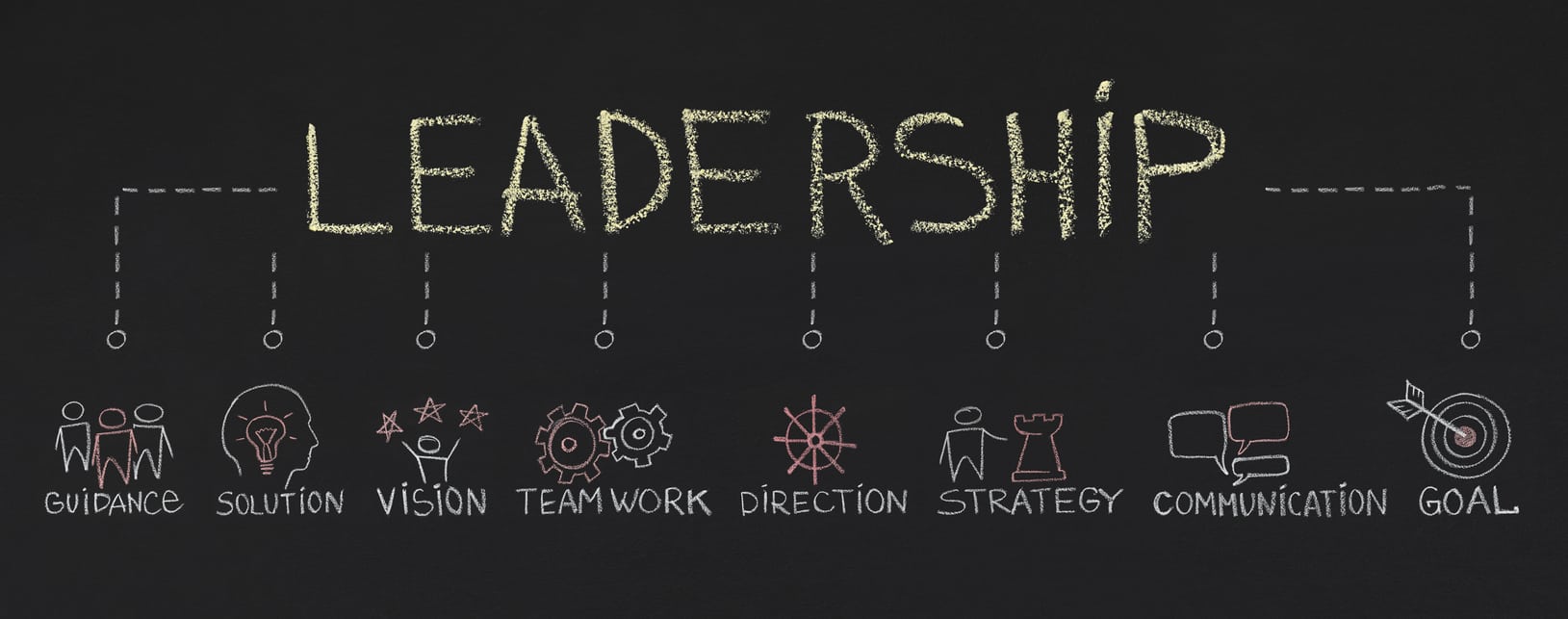Introduction
Leadership is a quality that many people aspire to. Leadership is one of the most important topics in business today. Leaders are the ones who set the tone for their organizations and drive results. But what does it really mean to be a leader? And how can you develop your own leadership skills? In this blog, we’ll be exploring some of the most common leadership interview questions and answers. This blog will help you understand how to answer these questions in a way that will make you stand out as a leader. So if you’re interested in learning more about leadership, or if you’re just looking for some guidance on how to ace your next interview, read on!
Leadership Interview Questions
1. List a few values that you find important as a leader.
Anyone in a leadership position should be aware of their values, their strengths, and the areas in which they may improve as a leader. Value-driven leadership can have a positive impact on the performance of the entire organization. The way you lead, the team environment you create, and the success of your organisation are all determined by your values. Here are a few values that are important for any leadership position-
- Integrity
- Empathy
- Vision
- Effective communication
- Humility
- Accountability
2. Do you find that you are more effective in a group setting or on a one-on-one basis?
In order to get exceptional results, we have to collaborate and work along with the team. It is always better to work in a group setting since everyone brings something special to the table. By assisting those in the group who require assistance and learning from those who are successful, we can improve our interpersonal skills.
3. Give an example of when a leader failed.
Many factors can contribute to leadership failure, including a lack of experience, poor communication skills, time constraints, unavailability of resources, and disputes with other leaders. Failures are not a problem if you end up learning something from that experience. In the example you provide, make sure that you highlight how you dealt with a difficult challenge and how you evaluated the setback.
4. If your team members disagree with each other, how will you create a cohesive environment?
Conflicts are inevitable, but it does not necessarily have to be destructive. The problem is not that the conflict exists, but how you choose to handle it. When approached positively, conflict promotes diverse ideas. Every conflict is unique, so there is no one-size-fits-all approach to handling them all. There are several aspects that go into determining which strategy is ideal for settling conflicts.
Start by having an informal meeting with each team member to settle disputes within the team. Rather than making assumptions, it is preferable to listen to people’s concerns in a secure environment. Find the source of the conflict and work to resolve it while keeping everyone’s best interests in mind.
5. What are the differences between a team manager and a team leader?
A manager is capable of managing tasks and responsibilities while also ensuring that others complete their tasks. However, a leader will motivate their team to achieve their objectives. Simply put, managers are task-oriented and leaders are people-oriented.
6. How did you gain commitment from your team?
By influencing and persuading your team to set precise goals and buy into the process, you can gain their commitment. They’ll be on board to achieve the goals once they’ve established collaboration.
7. If you had to praise/appreciate your team member, how would you do it?
It’s always good to praise in public and criticize in private. The weight of public praise tends to increase, and it pushes others to replicate what was excellent. You can bring up the appreciation to the team member during a time when individuals are gathered in a group, such as a meeting.
8. How often should you hold team meetings?
You should meet with your team atleast twice a week on a set time. Communication is essential among team members, and this will allow the group to discuss their challenges and best practices. One of the main tasks of a team leader is to ensure that everyone is on the same page. With frequent meetings, a leader can make sure that everyone gets the same message. It’s also a good idea to meet when you hit a milestone or face a challenging situation.
9. Describe your leadership style.
You can never be limited to just one style of leadership. Depending upon the situation, you should be able to change your style in order to get the most out of your team.
10. Give an example of a time when you displayed leadership skills even though you didn’t have the title of a leader?
Provide an example of a time when you were part of a group and had to delegate responsibilities to achieve a goal. Demonstrate how you persuaded other members to follow your lead and the outcome of your leadership.
11. List a few tips to motivate your team.
It’s important to motivate the team members individually in order to keep the team motivated. Here are a few tips to motivate the team-
- Offer opportunities for personal development.
- Encourage collaboration within the team.
- Don’t micromanage.
- Avoid useless meetings.
- Always appreciate the good work.
12. Do you believe that it is healthy to have competition with the team? Why or why not?
Competition within a team is beneficial as long as it is in a positive spirit. To avoid misunderstandings, a team must have a high level of cohesion among its members. As a leader, you must guarantee that when there is a competition, it is closely watched to ensure that it is in a good spirit.
13. How can you set a good example for your team?
To lead by example, you should guide others through your actions rather than your words. Your goal is to motivate people to replicate your actions. Only by giving it your all and ensuring that your words match your actions, you can set a good example for your team. As a leader, you should hold yourself to the same standards as your team.
14. According to you, what is one of the difficult parts of being a leader?
Leaders are constantly exposed to risk, and they must be persistently responsible for managing it. While communicating with others is not that challenging, connecting with the people you lead might be difficult. Leaders must remain calm when there is panic in the room. All these tasks are difficult but exciting.
15. Can you lead through change? How?
As a leader, you must be the first one to embrace change. After that, make sure that you communicate the change to your team with conviction that it’s the right course of action. Have the resources to find the answers to any questions that may be asked. Listen to others concerns about the change and offer assistance as needed. Simply put, effective change leadership is defined by the three Cs: 1. Communicate, 2. Collaborate, and 3. Commit.
16. What are your main motivations to become a leader?
Leaders thrive on challenge. They thrive on doing different things all the time. They like trying to work through challenges and find solutions to things. Here are a few examples of motivations to become a leader-
- To achieve and accomplish.
- To make an impact or bring a difference.
- To enable others to develop and succeed.
- To face challenges.
17. If you are unsure about how to achieve the team’s goals, what do you do?
You must be open to feedback and eager to seek assistance when you are unsure how to accomplish a goal. You can start by seeking suggestions from your manager on how you should go about attaining the objectives. You can also take the individual opinion of team members.
18. How can you measure your success as a leader?
As a leader, success is measured by the growth of the team and the goals that the team achieves.
19. Written communication/Verbal communication: Which are you more comfortable with?
As a good leader, you have to be comfortable with both. Written communication creates permanent record of evidence. But, it’s easier to put your point forward and address the concerns of others in verbal communication. Verbal communication is less time consuming and there’s less chance for confusion.
20. If you had to deliver bad news to the team, how would you do it?
You can bring the team members together and state the news. Try to explain clearly why that happened and what steps can be taken to avoid similar situation in future. Invite the team to express their concerns and answer their queries accordingly.
21. When it comes to leadership, what are the most difficult decisions you have to make?
The most difficult decision is always the one which can affect a person’s life. Here are a few examples of the most difficult decisions that a leader must make-
- Terminating an employee if there performance is continuously poor.
- Deciding whom to promote when you have several great candidates.
22. List some aspects where you have received criticism. How did you deal with it?
This question allows you to showcase your willingness to consider others’ opinions, learn from their feedback, and humbly improve your work as needed. You can answer this question by explaining a situation when you improved your performance as a result of constructive criticism. Talk about how you listened and made changes when your team criticized your work. It can also be relevant to talk about a period when your work was unfairly criticized and how you handled the situation without making anyone appear terrible. Simply put, you should emphasize your ability to deal with criticism in a calm, cool, and collected manner.
While answering this question, do not say that you have never been criticized at work because you may come across as arrogant, and this may sound as if you’re bragging.
23. How would you delegate responsibilities within your team?
As a leader, delegating responsibilities is important as it empowers your team and builds trust. Assigning the right task to the right person is crucial while delegating tasks to ensure the productivity of the team. While delegating responsibilities, make sure that the employees will be able to learn new skills and gain knowledge, which will prepare them for greater responsibilities in the future.
24. If you work in a fast-paced environment, how would you achieve your goals?
Goals can be achieved in a fast-paced environment by making suring that everybody is on the same page and the team knows the goals and the timelines that have been set. Set up milestones so that everyone can see how far they’ve come.
25. Who are the most important members of a team?
For a leader, everyone should be equally important. Each person brings something unique to the team, which strengthens the group as a whole.
26. Give an example of a time you weren’t able to meet your deadlines.
The ideal method is to talk about a specific incident where you missed a deadline due to unanticipated or unplanned circumstances, but take personal responsibility for the failure and discuss what you’re doing to prevent it from happening again.
27. What steps can you follow to remain engaged in a conversation?
You can remain engaged in a conversation by actively listening to what the other person is saying. You should listen to the words as well as the non-verbal cues to be attentive throughout. It will ensure that you are on the same page as the other person.
28. How can setting goals help you become a better leader?
Setting goals helps leaders in maintaining high levels of performance. Clear goal setting equals having a wider picture and vision in mind. These goals will help leaders in setting the right priorities and decide whether everyday tasks are urgent or important.
29. How can you ensure that you stick to the deadlines/timelines for project completion?
Here are a few tips that you can use to manage your time effectively and ensure that you don’t miss deadlines-
- Say ‘no’ when you don’t have the bandwidth for an additional task.
- Set a reasonable timeline depending on the complexity of the task.
- Focus on just one task at a time.
- Make a checklist and keep a track of important deadlines.
30. How do you effectively organize your tasks and projects?
Here are few tips to organize your tasks more efficiently-
- Set clear expectations from the beginning.
- Review progress regularly using updates and feedback from the team.
- Set realistic deadlines for each task.
- Effectively delegate tasks and anticipate issues.
31. How would your team describe you as a leader?
My team will describe me as a flexible leader who can change their plans to include new ideas and overcome obstacles while still meeting their objectives.
32. What is your biggest strength as a leader?
As a leader, your biggest strength can be self-awareness. Understanding how your personality traits, habits, and abilities affect your relationships with the people around you is self-awareness in leadership.
33. If you had to reorganize your team, how would you do it?
You can start reorganizing the team by first identifying the strengths and weaknesses in the current organizational structure. Also, communicate the reorganization to the team clearly and make the necessary adjustments.
34. Discuss a leadership challenge you faced.
An important part of being a successful leader is to be able to lead a team to success despite setbacks such as misunderstanding, inadequate resources, or pressure. You can use the STAR approach to showcase your ability to identify a challenge and make a strategy to overcome it.
35. What role does leadership play to a manager?
Leadership and management are not synonymous terms. To be a leader, you don’t need to be in a managerial role. A manager, on the other hand, can only be a true manager if he possesses leadership qualities. Managers are supposed to be the leaders of workgroups so that subordinates would happily follow their orders and accept their direction.
A manager has to perform five main functions – Planning, organizing, staffing, directing and controlling. Leadership is a part of all these functions. As a component of management, effective leadership behavior emphasizes the importance of creating an atmosphere in which each and every employee can grow and succeed.
36. What is your approach if you wish to deliver constructive feedback?
When giving constructive feedback, it’s crucial to ensure that you are presenting a balanced perspective, even if your feedback is ultimately positive or negative. While you shouldn’t feel obligated to paint a picture that differs from the reality of the situation, especially if you have major concerns about the work being discussed, it’s helpful to be able to point out some positives in that person’s attitude or output when giving negative feedback. If a project doesn’t match your expectations, for example, you can start the conversation by mentioning how you’ve been impressed with the individual’s work in the past, which is why you know this deliverable might have been better. Don’t lead someone to believe their performance is better than it is – but providing a few positives to drive them can go a long way.
37. How important is it to keep a track of your team’s progress?
If you don’t track your team’s progress, you’ll have a hard time meeting your objectives. Teams may lose sight of their goals, causing deadlines to be missed and budgets to be exceeded. One of the most crucial aspects of excellent project management is the ability to track team progress. It gives a clear sense of direction to everyone involved. You won’t know how far you’ve gone or how far you still need to go if you don’t keep track of your team’s progress. Managing resources and identifying bottlenecks will be more difficult.
38. What do you think about making unpopular decisions?
Making an unpopular decision requires a great deal of commitment, especially if you know it will be unpopular before you make it. The desire to fit in with the crowd is a normal human inclination. Those who are willing to make unpopular decisions, on the other hand, demonstrate remarkable bravery. It does not really matter if your decision is unpopular if your argument follows a logical path.
39. How important is time management for a leader?
Time management is a prerequisite for good leadership. The finest leaders are proactive and deliberate in their actions. It allows them to maximize their brainpower, ensure nice and effective connections with their colleagues, and feel motivated knowing that they control their calendar rather than it controlling them. At work, time management has an impact on performance and productivity. It will help you work more efficiently, fulfil deadlines, and produce higher-quality work. Time management is critical for leaders to prioritise all work duties and reach their objectives more quickly.
40. How do you incorporate the company’s objectives into the strategy of your team?
This question is asked to see if you understand how you and your team fit into the overall scheme of things at the organization. So, describe how you break down the company’s broad goals and translate them into KPIs for you and your team. Finally, outline how you communicate with your team about the goals. You must persuade the hiring manager that you assist your staff in understanding the value they add to the company by performing their duties.
Conclusion
The best leaders are those who are able to adapt their style to the needs of their team and the situation at hand. Leadership is not about being the boss or the most popular person in the room. It’s about being able to motivate and inspire others to achieve their best. It’s about setting the example and leading by example. The best leaders are those who are able to put the needs of their team first. They create an environment where everyone can thrive and feel valued. If you want to be a successful leader, you need to be able to empathize with your team, understand their needs, and be able to put their needs ahead of your own. You need to be able to motivate and inspire them to achieve their best. And you need to be able to make the tough decisions when necessary.
Overall, these leadership interview questions will help you get a better understanding of what it takes to be a leader. They will also help you identify whether you have the qualities that are essential for successful leadership.







